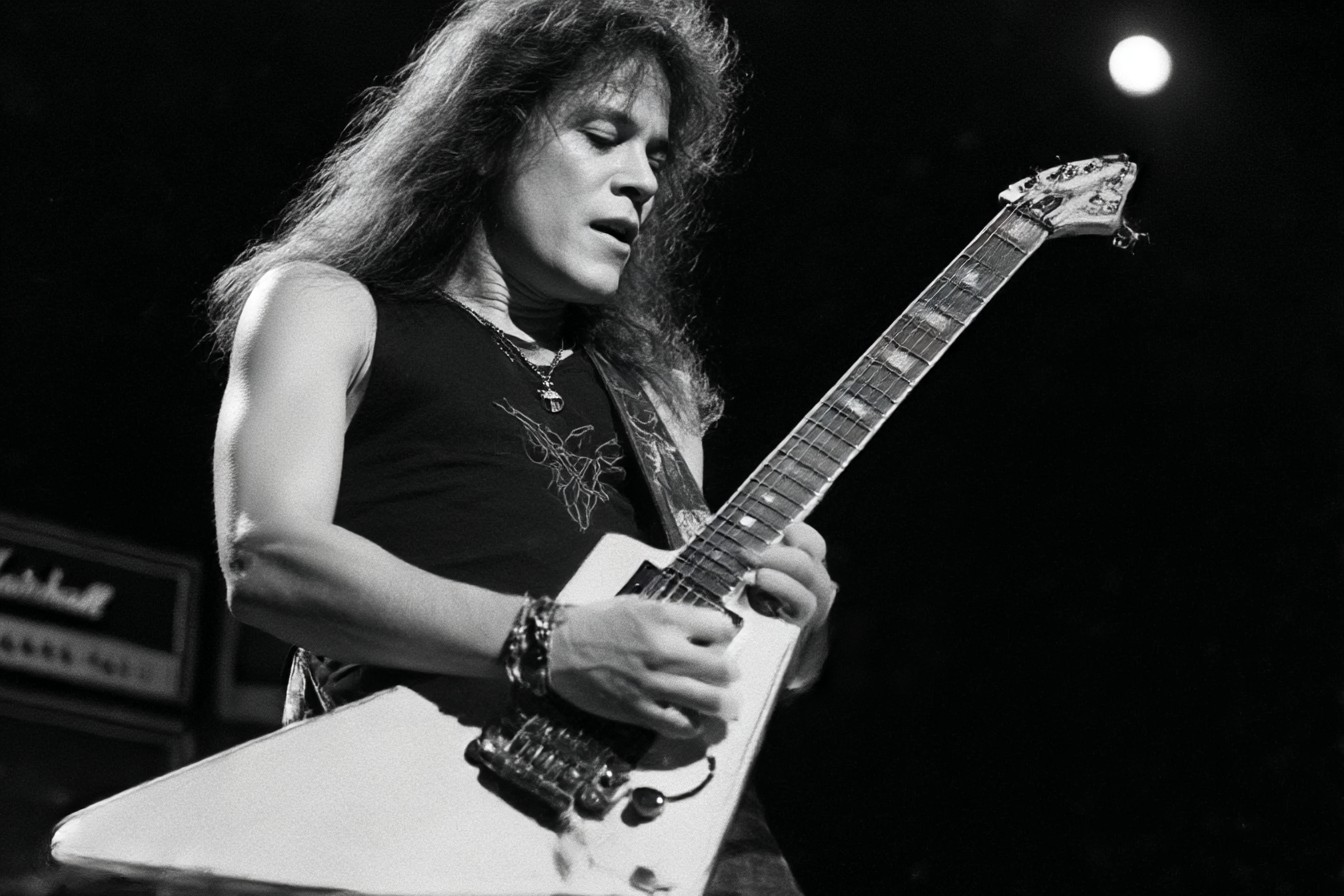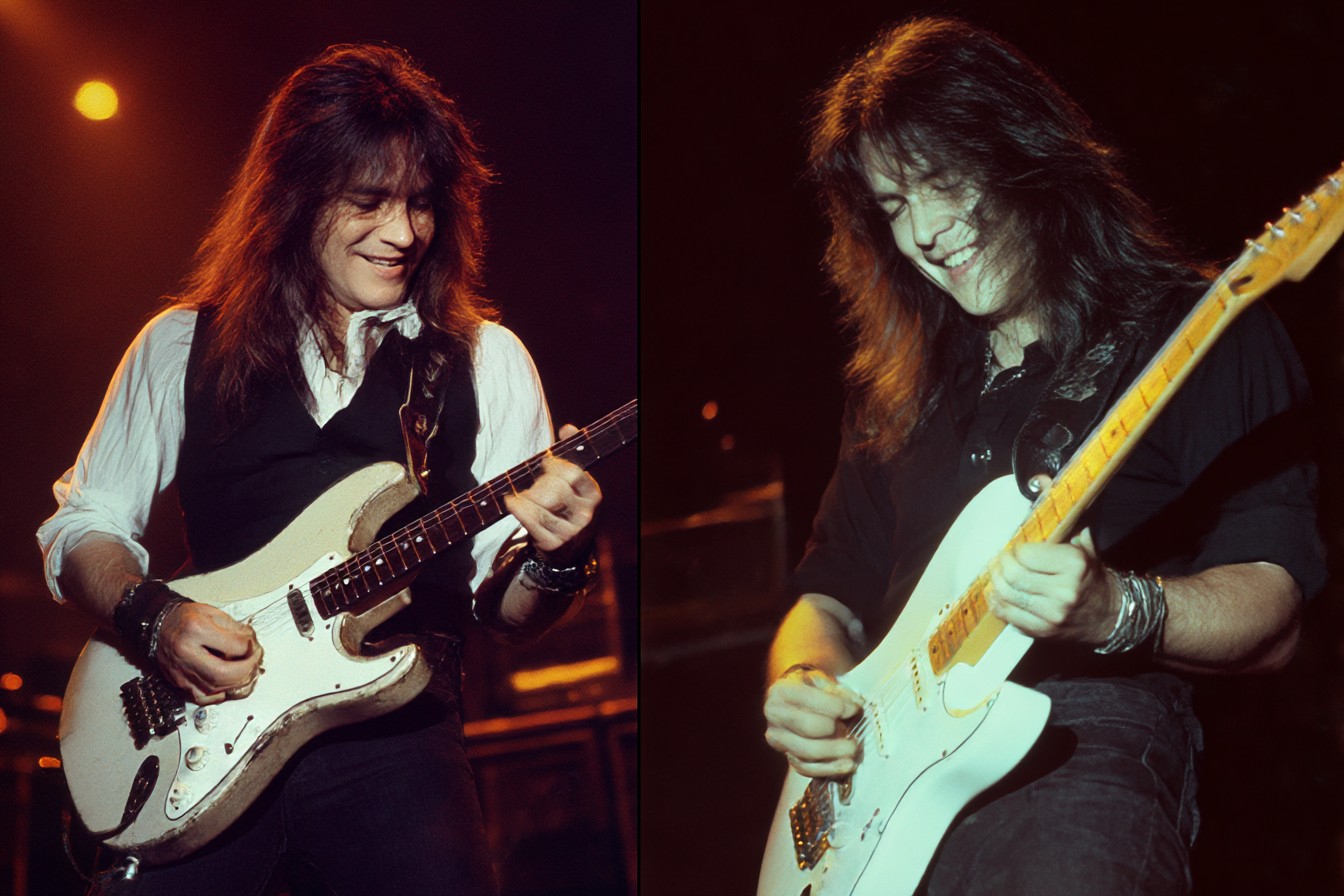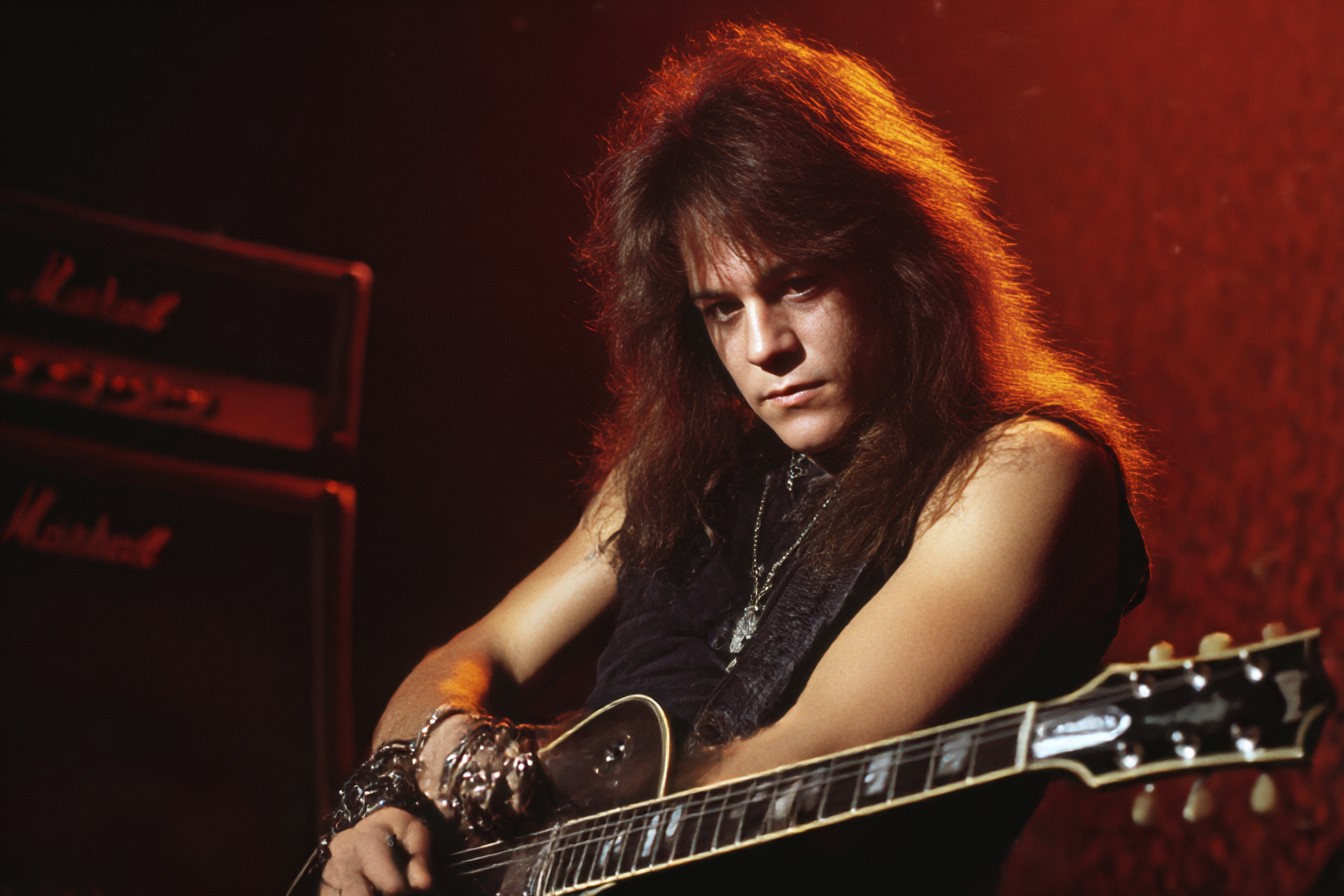I still remember exactly where I was when I heard Randy Rhoads had died. March 19, 1982. I was flipping through the used vinyl bin at Sound Garden when the store’s PA system cut off Black Sabbath’s “Sabbath Bloody Sabbath” mid-riff. The owner, Dave—a guy who looked like he’d been at Woodstock but exclusively listened to Judas Priest—grabbed the microphone and just said, “Hey, uh, just got a call that Randy Rhoads died in a plane crash. Shit’s fucked up.” Then he put on “Crazy Train” and cranked it so loud the record sleeves vibrated. Nobody spoke. Nobody shopped. We all just stood there, a congregation of metalheads having an impromptu funeral among the cardboard dividers and band tees.
That’s the thing about guitar heroes—they don’t just play music; they become part of your identity. Randy wasn’t just Ozzy’s guitarist; he was this beacon of hope that metal could be both technically brilliant and emotionally resonant. I’d spent countless hours with my cheap Harmony guitar trying to nail that “Mr. Crowley” solo, succeeding only in annoying my parents and making our cat develop an impressive repertoire of disapproving facial expressions.
So when Ozzy announced Jake E. Lee as Randy’s replacement (after the brief Bob Daisley stint that nobody talks about), the general consensus among my circle of metal obsessives was, “Who the hell is this guy, and how dare he?” It didn’t matter that Jake had credentials from Ratt or that he could obviously play. He wasn’t Randy. End of discussion.
Which brings me to “Bark at the Moon,” an album I initially approached with the kind of skepticism usually reserved for gas station sushi or guys who wear sunglasses indoors. I found my copy in the new release section at Tower Records, the iconic werewolf cover staring up at me. Twenty minutes of intense internal debate later, I handed over $7.99 with the grim determination of someone expecting disappointment but professionally obligated to experience it firsthand.
I still have that vinyl copy. It’s sitting about eight feet from me as I write this, nestled between “Diary of a Madman” and “The Ultimate Sin” in the chronologically organized Ozzy section of my collection (yes, I organize by band, then chronologically within each band’s discography, a system that has survived multiple relationships precisely because it’s objectively correct and I will die on this hill). The edges are frayed, and there’s a coffee ring on the back cover from a legendary 3 AM listening session in ’89 when my roommate and I got into an actual shouting match about whether Lee or Rhoads was the better technical player. These are the kinds of ridiculous yet deadly serious debates that define true music obsession.
First spin of “Bark at the Moon,” and I was… confused. Because it was good. Not good in a “well, this doesn’t completely suck” way, but legitimately, undeniably good. The title track kicked off with that horror movie synth before launching into one of the most perfectly constructed metal songs in Ozzy’s catalog. Jake’s riff work was phenomenal—aggressive and technical but with this bluesy undercurrent that gave everything a grounded feel. The solo? Fast but melodic, shreddy but purposeful. It wasn’t Randy, but it wasn’t trying to be, and that’s where Jake won his first points with me.
“You’re No Different” followed with this moody, almost prog-rock feel that showcased a different side of what this new partnership could do. Jake played with dynamics here in a way that showed he wasn’t just a shredder—he understood how to serve the song. And then “Now You See It (Now You Don’t)” came on with that circular riff that still pops into my head at random moments like when I’m waiting in line at the grocery store, causing me to air-guitar in public like the mature adult I clearly am.
What struck me then—and strikes me even more now, looking back—is how Jake managed the impossible task of stepping into a legacy without being consumed by it. He wasn’t trying to out-Randy Randy. He brought his own style—a bit more blues-influenced, a bit more hard rock than classical—and created something that honored what came before while establishing its own identity.
Let’s talk about “Rock ‘n’ Roll Rebel” for a second, which might be the most underrated track on the album. That opening riff is pure adrenaline, and the way Jake constructed his guitar parts through the verses—little harmonics and fills that dance around Ozzy’s vocal—shows a maturity beyond what most people gave him credit for. This wasn’t just flashy playing; this was thoughtful arrangement.
Of course, the album wasn’t perfect (what album is?). “Slow Down” always felt like filler to me, and “Spiders in the Night” had this weird disco-metal thing happening that I wasn’t entirely on board with. But even these tracks had moments—a blistering run here, an interesting chord voicing there—that showed Jake was the real deal.
What I think most critics missed at the time—myself included, if I’m being brutally honest—was that comparing Jake to Randy was always a losing game, not because Jake wasn’t excellent, but because grief and nostalgia are powerful distorting lenses. Randy had become mythologized by his tragic death, elevated from “amazing guitarist” to “irreplaceable legend.” How do you follow that? The miracle isn’t that Jake E. Lee didn’t measure up to that impossible standard—it’s that he managed to create something worthwhile at all.
I ran into Jake once, years later, at NAMM in 1998. I was there covering the show for a magazine (which shall remain nameless because I still occasionally freelance for them, and they still owe me money for that particular assignment). He was hanging around the Charvel booth, looking simultaneously bored and intimidating in that way only veteran rock guitarists can manage. I worked up the courage to tell him how much I appreciated his work on “Bark at the Moon,” particularly the way he incorporated bluesy elements into metal framework.
He looked surprised, then genuinely appreciative, saying something like, “Thanks, man. Not many people noticed that stuff.” We talked for maybe five minutes about tone and his approach to solos. He mentioned that he’d composed a lot of the tracks on “Bark” but didn’t get proper writing credits, which later became a well-documented grievance. I asked him if he ever got tired of the Randy comparisons, and he just shrugged and said, “It was always gonna be that way. He was special.” No bitterness, just acknowledgment of reality.
That conversation changed how I heard the album. Next time I played it, I wasn’t subconsciously looking for ways it didn’t measure up to “Blizzard of Ozz” or “Diary of a Madman.” I was hearing it on its own terms—as a solid metal album from a time when metal was simultaneously gaining mainstream appeal and splintering into countless subgenres.
Forty years after its release, “Bark at the Moon” holds up remarkably well. That title track remains a staple on rock radio and in Ozzy’s live sets. Jake’s guitar work, once unfairly dismissed as not-Randy-enough, now stands as a testament to finding your own voice even when standing in the longest shadow imaginable.
The production—by Ozzy and Bob Daisley—has this early 80s density to it that I actually prefer to a lot of the overly polished metal that followed in the later 80s. Sure, there’s that very-of-its-time gated reverb on the drums, but the guitar tones are crisp and present, the bass provides actual countermelodies rather than just following the guitars, and Ozzy’s vocals sit in this perfect pocket where he sounds engaged and powerful.
When I play “Bark at the Moon” for younger metal fans—which I do with evangelical regularity, because passing down metal appreciation is basically my love language—they’re always surprised by how contemporary parts of it still sound. That title track could come out tomorrow, and it would still rip faces. “Centre of Eternity” has this epic quality that bands are still trying to capture. And “Waiting for Darkness” creates an atmosphere that any modern doom metal outfit would kill to achieve.
I’ve got this ritual now where every March 19th, I play “Crazy Train” for Randy, then immediately put on “Bark at the Moon” for Jake. It’s my small way of acknowledging that while legends may be irreplaceable, that doesn’t mean what follows can’t be its own kind of special. Jake E. Lee took on the most thankless task in metal history and didn’t just survive it—he created something enduring.
Not bad for the guy we all doubted, huh?




Leave a Reply